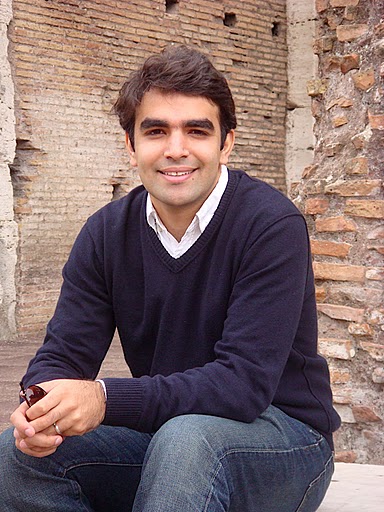Democracy in the Muslim world became a topic of much discussion in the mainstream media following the U.S. invasion of Iraq and Afghanistan in the early 2000s. As he followed the coverage, Hussein Banai found himself perplexed by the way scholars and media would talk about the development of democracy in the region. Most saw it as an ideal that needed to be reconciled with the region’s main religion of Islam, not something that touched on a broad range of cultural, political, and economic factors in addition to Islam. Islamic reform was needed, they argued, in order to better integrate democracy into the region, as it was believed that Islam was responsible for the “democratic deficit” that exists there.

As he dug deeper, Banai found two schools of thought emerging on how best to bring democracy into the Muslim world. On one hand, policy experts were advocating the need for taming the activist, sometimes violent image associated with Islam and promoting a range of governmental and civil society initiatives aimed at engaging “moderate” religious authorities. On the other hand were those who argued that Muslims already had plenty of moderate and liberal interpretations of Islam at their disposal, which they could readily draw upon to support the cause of democracy.
Within these discussions, Banai, a native of Tehran, Iran, who immigrated to Canada at age 15, saw a broader issue at work: There was little mention of the relationship between universal democratic ideals — autonomy, equality, tolerance - and the local values of the area. From his own personal experience living in two very different countries, Banai was witness to the fact that it was the local political context more than any singular appeal to religious values, that determined the shape of struggles on behalf of democratic ideals.
Finding a dearth of research on democratic movements in nondemocratic settings — and thus no normative framework within which to place them — Banai set out to develop a theory of “contextual” democracy, one that could account for the wide-ranging local sources of democratic legitimacy. This is the subject of his doctoral thesis, titled Democracy in Context: Between Universal Ideals and Local Values, for which he will be awarded a Ph.D. in political science at Commencement this year. His thesis was awarded the Joukowsky Family Foundation Outstanding Dissertation Prize in the social sciences by the Graduate School.
“Of the People, By the People, For the People”
In conducting his research, Banai’s first order of business was to examine the current definitions of democracy and see how they might be improved upon. His feeling was that the disparity of thought about democracy in the Muslim world was due to a lack of proper understanding about what democracy, not Islam, was. “Theory says that democracy is a system of moral and political legitimacy based on equal respect for people. It doesn’t matter what society you apply it to: Christian, Muslim, atheist,” Banai said. Instead, he argues, the true difference among the groups is the context within which they apply the theory. Thinkers who ascribe to this basic definition of democracy can be divided into two groups: Universalists, for whom democracy is based on a general set of ideals, and particularlists, who base their idea of democracy on a localized set of shared values and identities.
Ideals of democracy vary from group to group based on what they hold dear, according to Banai. “For example, feminists think very broadly about equality, while foreign policy experts see democracy as a means to prosperity and peace, believing that no two democracies will ever go to war with each other. In a way, democracy is a most fascinating social concept because it is still very difficult to define.”
Banai’s research also included a case study of the century-long struggle for democracy in Iran as a way of demonstrating diversity of grievances and aspirations that this movement comprises. Comparing Iran’s plight to the development of democracy in the United States and France, Banai was able to find similarities that supported his theory. While the content of each country’s struggle for democracy was no doubt influenced by individual histories and cultures, “all three had moments of upheaval and protest centered around the struggle for democratic principles of equality, autonomy, and respect for rights.”
Context matters
Despite the universal appeal of democratic ideals, the legitimacy of any democratic regime ultimately rests on its ability to be responsive to the formative influence of context on the agency of individuals and groups, Banai said. Democracy in the end is a means of debating the terms of coexistence in society, not a utopian destination, an argument best exemplified in the case of the anti-authoritarian uprisings in Iran and throughout the Arab Middle East. “Genuine understanding of the potential pitfalls and triumphs brought about by democracy requires one to understand the concrete constellation of ideas, beliefs, traditions, and values within which it is located,” Banai wrote in his thesis.
Beyond Brown
In addition to his thesis, Banai has had another research project in the works for several years, which he will see come to fruition with the June publication of his Becoming Enemies: U.S.-Iran Relations and the Iran-Iraq War, 1980-1988. He co-authored the book with researchers from MIT, University of Waterloo, and the National Security Archives. He also plans to continue with his research of democracy in the Muslim world, including a future case study of the 2011 Arab Spring. This summer he moves to Los Angeles with his wife and newborn daughter to begin a tenure-track position at Occidental College as a professor of diplomacy and international affairs.

